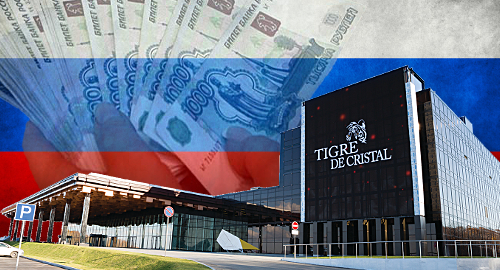 Russia’s Deputy Prime Minister paid another ominous ‘working visit’ to the Primorye far east gaming zone this week to check on the progress of new casino projects.
Russia’s Deputy Prime Minister paid another ominous ‘working visit’ to the Primorye far east gaming zone this week to check on the progress of new casino projects.
In August, Deputy PM Yuri Trutnev expressed displeasure with the general lack of interest among casino operators in putting down roots in Primorye, as well as the slow pace of development by the operators who had expressed interest. Trutnev warned that Moscow could take control of the region if things didn’t improve.
On Tuesday, Trutnev was back in town to personally inspect the progress of two in-development Primorye projects: Russian operator Diamond Fortune Holdings’ Selena resort, and Cambodian operator NagaCorp’s Naga Vladivostok. The Selena project is still prepping the ground to lay its foundation, while the Naga project is a little further along.
Trutnev was typically blunt in quizzing NagaCorp VP Dennis Chan when his resort expects to open, to which Chan offered a mid-2019 target, although he quickly promised to “work without interruption all winter” in the hopes of accelerating that timeline (and presumably avoiding an all-expenses-paid trip to the gulag).
In September, Primorye officials approved a new casino project, to be built by Russian operator CJSC Shambala, which also operates a casino in the soon-to-be-closed Azov-City gaming zone in southern Russia. Work fast, boys…
TIGRE DE CRISTAL WITHHOLDING LOVE FROM NEW TAX RULES
Meanwhile, Primorye’s lone functioning casino, Lawrence Ho’s Tigre de Cristal, is reportedly expressing reservations about its future commitment to the region due to Russia’s increasingly grabby tax approach.
In late November, Russian President Vladimir Putin signed legislation that doubled taxes on Russian gaming operators, with further tax hikes scheduled to be rolled out piecemeal until 2020, by which time rates will have risen tenfold.
On Monday, Russian media outlet Primamedia quoted Primorye’s vice-governor Tatyana Kazantseva saying Summit Ascent execs had expressed concern over the uncertainty of Russia’s tax regime. In fact, Kazantseva claimed the casino execs had told her the company could “suspend their activity altogether” over these concerns.
But the execs’ concerns reportedly have less to do with their own tax hikes than with the new legislation’s tax on gambling winnings. Gamblers are now required to pay tax on winnings over RUB 15k (US $250) and gaming operators are required to deduct these winnings at source before returning them to the state.
Kazantseva said the casino execs had expressed concern about withholding this tax, not just because it effectively turns them into Putin’s tax collectors, but also due to the expected reactions of some casino customers, because apparently “not every citizen agrees with this.” Odd, that.